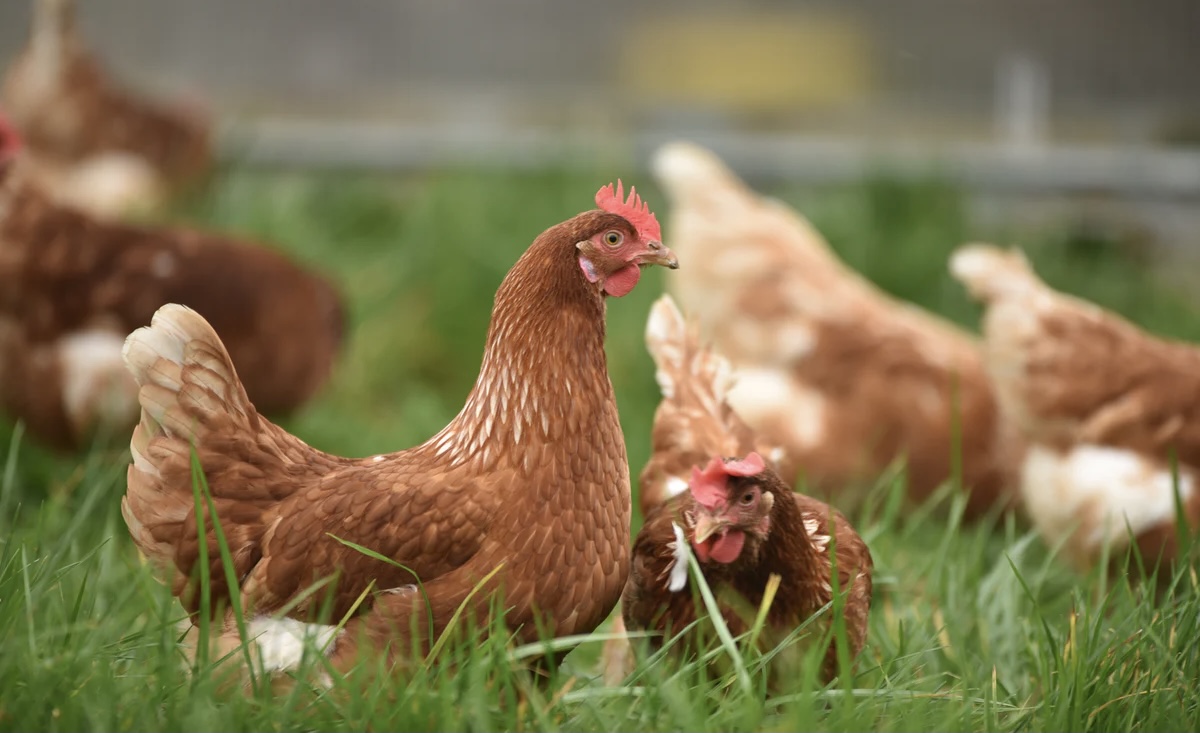Herefordshire Council is advising bird keepers to follow the latest government advice, in light of the recent outbreak of avian flu.
An Avian Influenza Prevention Zone (AIPZ) was originally put in place across the whole of England following a number of confirmed cases among wild and commercial birds. The AIPZ came into force at 5pm on Friday 5 November and means it is now a legal requirement for all bird keepers to follow strict biosecurity measures.
Keepers with more than 500 birds will need to restrict access for non-essential people on their sites, workers will need to change clothing and footwear before entering bird enclosures and site vehicles will need to be cleaned and disinfected regularly to limit the risk of the disease spreading.
Avian influenza circulates naturally in wild birds and when they migrate to the UK from mainland Europe over the winter they can spread the disease to poultry and other captive birds.
Backyard owners with smaller numbers of poultry including chickens, ducks and geese must also take steps to limit the risk of the disease spreading to their animals.
The UK health agencies advise that the risk to public health from the virus is very low and the UK food standards agencies advise that avian influenzas pose a very low food safety risk for UK consumers. Properly cooked poultry and poultry products, including eggs, are safe to eat.
The national Avian Influenza Prevention Zone means that bird keepers all across the country must:
- Keep domestic ducks and geese separate from other poultry;
- Ensure the areas where birds are kept are unattractive to wild birds, for example by netting ponds, and by removing wild bird food sources;
- Feed and water their birds in enclosed areas to discourage wild birds;
- Minimise movement into and out of bird enclosures;
- Cleanse and disinfect footwear and keep areas where birds live clean and tidy;
- Reduce any existing contamination by cleansing and disinfecting concrete areas, and fencing off wet or boggy areas;
- Keep free ranging birds within fenced areas, and ponds, watercourses and permanent standing water must be fenced off (except in specific circumstances, e.g. zoo birds).
Bird keepers should visit the gov.uk website for full details of the AIPZ and updated biosecurity guidance.
Councillor Ange Tyler, Cabinet member for Housing, Regulatory Services & Community Safety said: “Herefordshire Council would like any keepers of poultry and captive birds in the county to be vigilant for any signs of disease in their birds and any wild birds. If you have any concerns, please seek prompt advice from your vet, and help to prevent avian flu by following the government advice and maintaining good biosecurity on your premises.”
“The introduction of the AIPZ comes after several cases in kept poultry and birds confirmed in the UK and will be in place until further notice and will be kept under regular review as part of our work to monitor the threat of bird flu.”
Poultry keepers and members of the public should report dead wild birds to the Defra helpline on: 03459 33 55 77.
Keepers should report any suspicion of disease to APHA on: 03000 200 301



